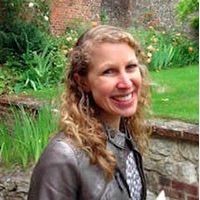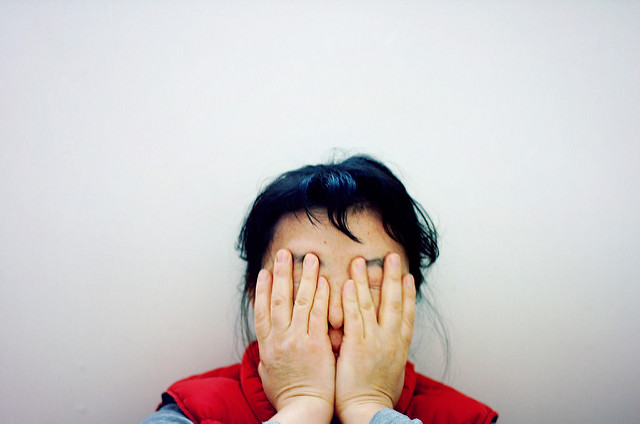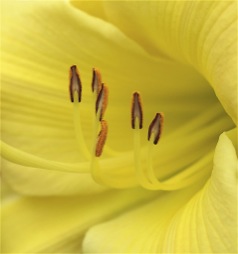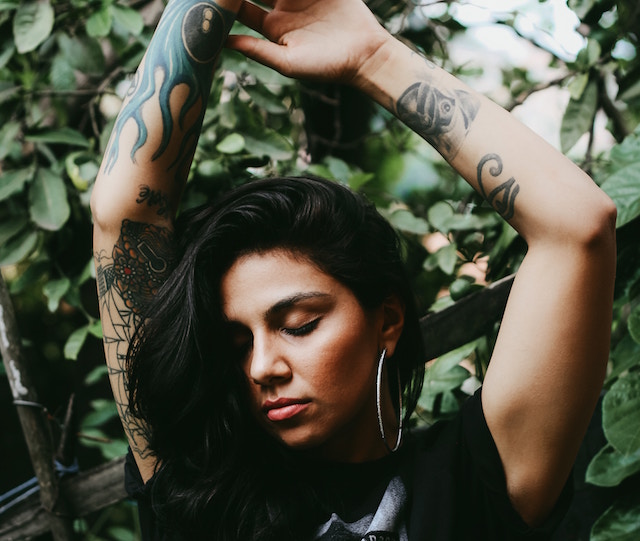
The battle that is spoken about in the portion Ki Tetze, the Zohar tells us, is the battle of the individual against what is called the Negative Inclination, or the Desire to Receive For the Self Alone. And, as we know, we are in the month of Elul, the month of cleansing, so I am hopeful that this teaching will reawaken and strengthen the process of our own individual teshuvah, the process of looking inside.
Rav Naftali Ropshitz teaches that when a person goes through a process of teshuvah,of correction, beginning with introspection, and feels great regret for the negative actions he or she has done, one of the most important spiritual teachings to remember is that whatever we do in this world, positive and negative, occurs in the Upper Worlds, as well. This is also from the Midrash, and the Ba'al Shem and Rav Brandwein both speak about it, as well. But here, Rav Naftali Ropshitz is talking about the positive; whatever positive we do causes the exact same thing to occur in the Upper Worlds. Every action that an individual does awakens the similar action in the Upper Worlds.
There is a verse in Psalms, in Tehillim, which says that the Creator is our shadow, and is something that Rav Brandwein often repeats to the Rav Berg. The Creator is our shadow, it says, and therefore, every action that we do, the Creator also does. All that will occur in the Upper Worlds is dependent on the individual. That is a concept fundamental to the wisdom of Kabbalah, and as we said, mentioned very often in the teachings of Rav Brandwein.
Therefore, when each one of us goes through our own process of teshuvah, we look inside, we look at this year, we look at our lives, and we say, "I did this wrong. I did that wrong. I acted selfishly in this area, I acted negatively in this area. I did that, and really hurt another person,” we awaken real pain and regret, and in so doing, force the Creator to also do teshuvah. When we do teshuvah in this world, when we have regret and pain over negativity that we have done in this world, we cause the Creator also to have regret. We cause the Creator also to do teshuvah. What does that mean?
We are beginning to understand that the month of Elul is not just a month when we do teshuvah, but that also, through our teshuvah - and maybe this is the most important aspect of the process of Teshuvah - we are actually causing the Creator to have regret. What does it mean for the Creator to have regret? What does that mean for the Creator to do Teshuvah? At times, it says in the Midrash that the Creator says, "I made a mistake. Why did I create the Evil Inclination? Why did I create the Desire to Receive for the Self Alone?" It says in the Prophet Micah that the Creator says, "I made a mistake." So now, we are beginning to understand that the real purpose for our Teshuvah, the real purpose for our pain, the real purpose for our regret, is to awaken regret for the Creator. For the Creator to say, "I regret. I made a mistake by creating the Evil Inclination, by creating the Desire to Receive for the Self Alone."
To help us understand this, Rav Naftali of Ropshitz explains it with a parable:
A father has a son that he loves and gives a gift of a beautifully carved knife, one that opens and closes, for his son to enjoy. Of course, the father thinks his son has enough sense that he when he is done playing with the knife he will close it so that it cannot harm anybody, but the son was not so smart. The son plays with the knife. When he is done, he forgets to close it, and cuts his hand. And, of course, the son is in pain.
When the father sees his son in pain, he then has two levels of his own pain: one level, as a father, is such that he feels the pain for his son who is in pain. And on a deeper level, the father also has greater pain because he knows that, in some way, he is responsible for his son’s pain by giving him the knife; even though, of course, the only reason the father gave the son the knife was so that the son could enjoy it and benefit from it. So, the father feels a pain of regret and some responsibility for giving his son something that was meant to cause him benefit, yet instead caused him harm.
Why were we born with the Desire to Receive for the Self Alone? Why were we born with the Negative Inclination? Because we know the real purpose of it is that through the fight against the Desire to Receive for the Self Alone, we elevate, grow, benefit, and bring great Light and great blessings to ourselves and to the world; that is the purpose, of course, of the Negative Side, and the Desire to Receive for the Self Alone. The purpose is to fight against those negative desires, akin to the son closing the knife and not being cut by it.
But since we often do not win that battle against the Desire to Receive for the Self Alone, and therefore, do not receive the great Light and blessings that are meant to come to us from that battle, we allow it to become stronger than we are and overtake us; then, not only do we not draw Light and blessings, but through our selfishness, we damage ourselves and also endure darkness and pain. And so, the Creator sees that and says, "I made a mistake. I should not have given that person that Desire to Receive for the Self Alone." And the Creator feels regret for creating that aspect of the Desire to Receive for the Self Alone.
However, that regret, and this is the beautiful understanding, does not come all the time. If a person acts in a way of selfishness, and through that action, draws pain and darkness to themselves, but he or she does not have regret or pain for the darkness that they have awakened in the world, then the Light does not feel that towards them either. So the system is set up in a way that the only time there is regret for our individual selfishness, the only time the Light of the Creator feels regret for that creation, is when we, ourselves, feel regret and pain for our negative actions.
On the other hand, when a person does not go through the process of teshuvah, or does not awaken enough of that pain, or to the degree that the individual awakens that pain, is then the degree to which the Creator feels that level of regret. Now, why is this so important? First of all, let us understand this. What we are learning is that when we feel pain and regret for our actions of Desire to Receive for the Self Alone, then and only then, does the Light of the Creator say, "I am sorry; I am sorry that I gave you that Desire to Receive for the Self Alone. I see the pain it has caused you." A person who acts with selfishness but does not feel pain or regret for that action, the Creator, therefore, does not feel any regret either.
However, when an individual begins the process of teshuvah and looks inside and says, "I feel so badly that I caused pain to that person. I regret so much the action that caused pain. I regret so much the action of selfishness that brought so much darkness into my life and into this world,” then the Creator says, "I feel bad too. I feel bad that I gave you that challenge, I feel bad that I gave you that Desire to Receive for the Self Alone, I regret that you have that Negative Inclination."
Why is this important? Who cares if the Creator is feeling regret or not feeling regret? What difference does it make? What benefit do we, or the world, get? When the Creator sees that the individual feels tremendous pain for the hurt he has caused others, and for the hurt and darkness he has brought into his own life and into the world, the Creator then starts feeling regret and pain, asking, "Why did I give him this challenge, why did I give him this awakening to do a negative action?" When the Creator sees that the individual feels tremendous pain from the actions that he or she has done, for the selfishness that he or she manifested, the Creator also begins feeling the pain and regret.
And when the Creator has regret, the Creator says, "I am not happy I created that individual’s Desire to Receive for the Self Alone," and then that Desire to Receive loses its strength. It can no longer exist, because it gets its energy from the Light. So we ask the question again: Why is it important that the Creator regret and have pain for our Desire to Receive for the Self Alone? Because once the Creator has pain and regret for our selfishness, then selfishness goes away. The Negative Side goes away, because it does not have anything to support it anymore, it does not have the Light of the Creator to sustain it anymore. That is why it is so important that the Creator does teshuvah.
What is the Creator's teshuvah? The Creator's teshuvah is, "This selfishness, this Negative Inclination that I have given this person has caused him or her so much pain, and they have so much regret and so much pain of how they manifested and fell to it. I regret creating it." And because the Light of the Creator regrets creating it, it disappears, and it cannot exist anymore.
That is why feeling pain and regret for negative things that we have done is so important, because as Rav Ashlag tells us, no matter how much teshuvah we do, no matter how much introspection we do, no matter how much regret we have, we cannot do teshuvah on our own. We cannot get rid, on our own, of those forces that awaken us to act in ways of selfishness. We need the Creator's assistance. But now we understand what that means. What do we need the Creator to do? We need the Creator to do teshuvah. We need the Creator to say, "I am so sorry that I created your selfishness. I am so sorry that I created your desire to act in a negative way." And when the Creator feels that, when that consciousness is awakened within the Light of the Creator, then that force of negativity disappears. It cannot exist anymore. That is the beauty, and that is the power.
It says about the month of Elul that we come to the Creator, and the Creator assists us. We need the Creator's assistance. What does that mean? Now we understand it means that we need the Creator to do Teshuvah. We need the Creator to regret and have pain for the creation of the Desire to Receive For the Self Alone. And the greater our pain and regret for the actions that we have done, the greater the regret the Creator has for the creation of Desire to Receive for the Self Alone and Negative Inclination, and the more that force is removed from this world.
This is a beautiful, powerful, and hopefully, practical teaching. We now understand there is no limit of pain and regret that we should have for our negative actions, because every ounce of regret and pain for our negative action benefits us by allowing the Creator to have greater and greater regret and remove more and more darkness, negativity, and selfishness from both our lives, and the world.







